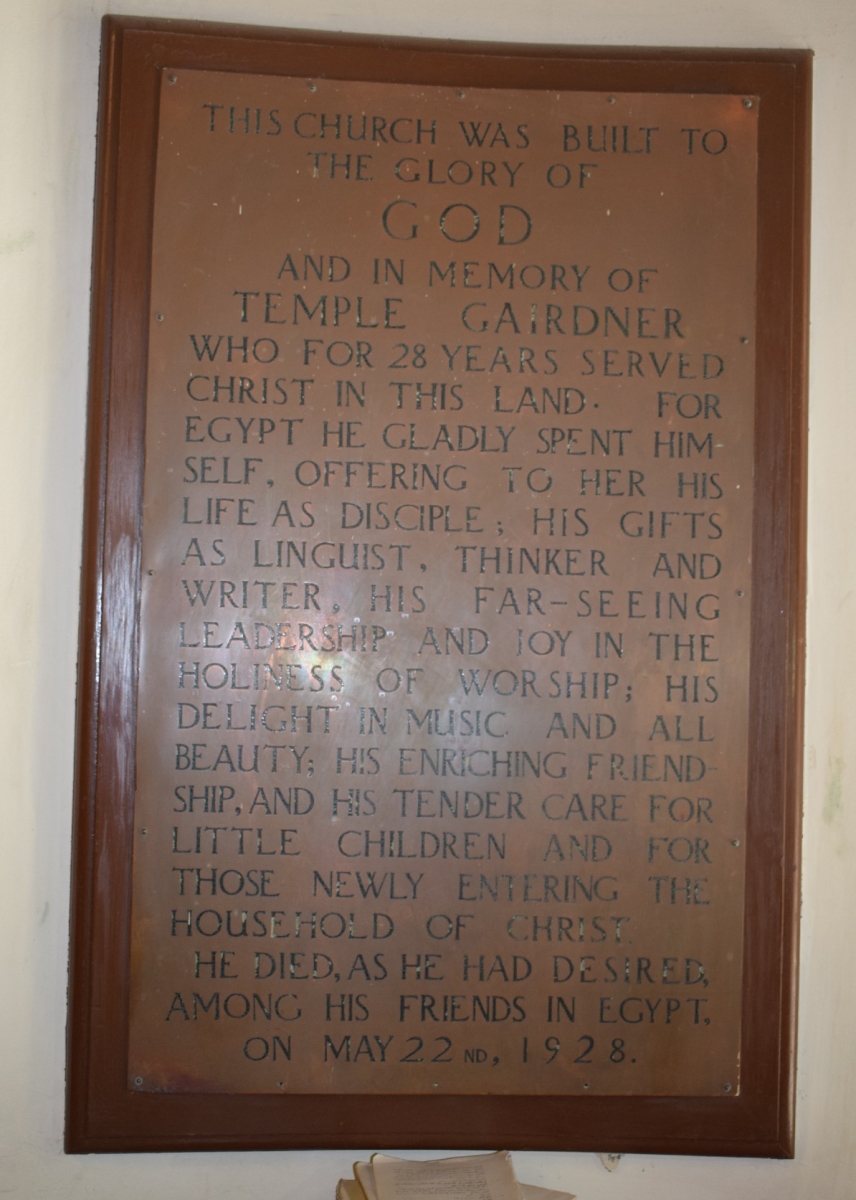
In these times of new post-colonial scrutiny of former mission activities, it is good to celebrate someone who is universally accepted as an example of considerate, courteous and most effective good practice, and who was born 150 years ago this year. William Henry Temple Gairdner was born in Ardrossan Scotland, and after taking his degree at Trinity College Oxford joined CMS and set out for Cairo in 1898.
His aim was to work among the ‘educated classes,’ but that elitist sounding description belies a much wider ability to mix with and care for people more generally. His initial impact was indeed at the academic level. After ordination in 1901 he worked at teaching missionaries and native teachers colloquial Arabic. He was a gifted linguist and wrote textbooks on phonetics as well as hymns and poems. He produced plays to be performed by children on Biblical themes (and these are still available on Amazon). He founded a Christian Arabic magazine. His ambition was groundbreaking for the time. He was a serious student of Islam, and he is regarded as an important figure by both Christians and Muslims. He had a developed interest in all forms of the arts and collected some three hundred Near Eastern tunes for use in Christian worship. He worked to make the Arabic Anglican Church truly reflective of the indigenous culture, training indigenous leaders and working to build relations with the Coptic Church.
After his death, and in his honour, the Church of Jesus Light of the World was built in Old Cairo. It is still a thriving church and a plaque inside the door witnesses warmly to its earthly inspiration. The church is now also home to the deaf community of Cairo, and in the grounds of the church there is a School for the deaf, catering for both day students and boarders. The boarding facility means that deaf children from Upper Egypt, where deafness is a particular problem, can take advantage of the facility. During covid it had to shut and since then has undergone considerable renovation to produce what is a state-of-the-art facility. The work was funded by the people of Japan, as a Development Fund Project and next month the Japanese Ambassador will open it, officially.
On the same campus there is also a vocational training facility for deaf people. The opportunities include sewing for women and carpentry for men, with literacy classes for all ages. It is fascinating to see how people are taught to speak with aid of mirrors, so that they can see the shapes that their mouths make, rather than by hearing the sounds that hearing people rely on to learn. The eyes have to play the part that ears play for hearing people in other ways too. Unsurprisingly, there is a thriving art workshop there.
Understanding that, and having had the experience of covid, a new initiative is being launched this summer – digital church (follow link below to find out more). The Anglican Church has its own studio facilities at the All Saints Cathedral campus, and already many hours of material have been produced ready for use in what is a groundbreaking initiative. Surely Temple Gairdner would have approved.

